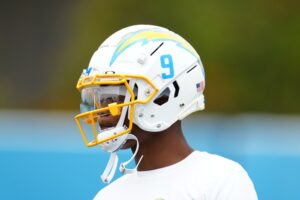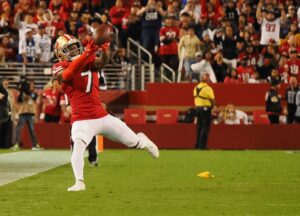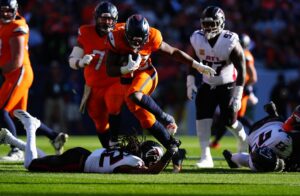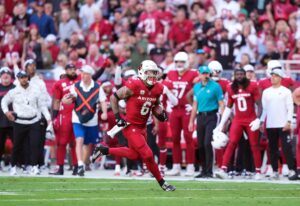In a new Sports Illustrated interview with the commissioner of the National Football League, the expected answers are given on a variety of topics. The most interesting comment surfaces when Roger Goodell says player safety is a secondary concern for the fans he has interacted with.
Roger Goodell Says Player Safety Isn’t a Top Priority for Fans
The fans are more interested in football [than player safety and activism]. We are the ones who make safety a priority. Fans support that because they want to see their players play. They want to know that they’re being taken care of. That we’re giving them the proper medical attention. We’re doing what we can to prevent injuries. Most fans—and I have this conversation with them all the time—want to see the players on the field. That and they want to see their team playing at the highest level. They want to see both. And that’s what we try to deliver: Make the game as safe as possible but allow players to perform at the highest levels.
Goodell has a point from a logical perspective. In order for player safety to be a concern, there have to be games being played. In order for the NFL‘s product, which is football games, to be continuously produced, consumers must be entertained by them. In the struggle to balance the performance of the league as a business and keep players safe, it will always be in the NFL’s best interest to do what’s best for the quality of the product.
What Goodell’s Answer Misses
It’s hard to sell player safety as a secondary concern when the NFL is raking in billions in revenue, however. While the majority of that is eaten up by expenses, and only a percentage of it is profit, it’s hard to get fans to understand the economics of scale that Goodell deals in for his job. In the mind of the average fan, the NFL isn’t about to go bankrupt.
As Goodell stated, fans want to see both football at a high level and players stay on the field. Under that premise, Goodell underestimates the concessions that fans would be willing to make in order to improve player safety. If significant changes to the NFL’s brand of football are necessary to keep players playing, it’s the league’s and therefore Goodell’s job to educate fans about that necessity. As the global premiere league for the sport, the narrative that the NFL writes about football will become the popular opinion, whatever that narrative is.
Goodell’s answer also discounts the financial fringe benefits of keeping players healthy and active. Players with long careers garner large fan followings which lead to jersey and memorabilia sales, endorsements and marketing opportunities. All those benefit the bottom lines of the league, player and team.
In response to this question, Goodell gave the answer expected of him. It’s the responsibility of a business leader like Goodell to constantly evaluate the feedback of his customers and make sure that the product reflects the market’s desire for it. What Goodell’s answer misses, however, is the human element to his product.
As long as the NFL treats its players like paths to revenue, so will its fans. Perhaps, if the NFL instead crafted a message of player safety being more important than exciting game play, fans would return that same feedback to the league.






